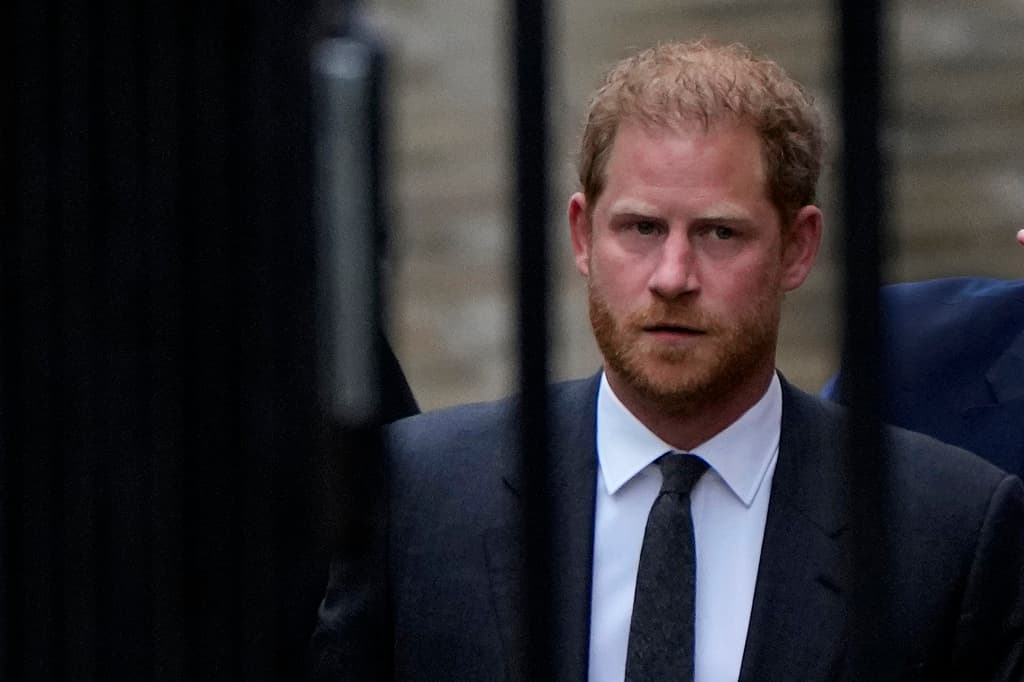Prince Harry Skips Out on First Day of London Phone-Hacking Trial, With His U.S. Immigration Status at Risk Due to ‘Drug Use’
Harry will become the first British royal since the 1890s to appear in a courtroom witness stand when he testifies Tuesday at the High Court.

Prince Harry faces two court hearings on Tuesday that will determine the fate of his immigration status in America and his legal battle against the British tabloids.
Harry will become the first British royal since the 1890s to appear in a courtroom witness stand when he testifies Tuesday at the High Court at London for his lawsuit against Mirror Group Newspapers. On Monday, the duke of Sussex did not show up in court despite receiving orders to do so from the judge, Timothy Fancourt.
Judge Fancourt said he was “surprised” by Harry’s absence from his court. A lawyer for Mirror Group Newspapers, Andrew Green, said he was “deeply troubled” and found it “absolutely extraordinary.”
Harry’s lawyer, David Sherborne, told Mr. Fancourt that the duke of Sussex had flown in from Los Angeles late Sunday following the birthday celebrations of his daughter, Lilibet, but could not make it to court on Monday. “His travel arrangements are such, and his security arrangements are such, that it is a little bit tricky,” Mr. Sherborne said.
Harry is part of a group of more than 100 high-profile figures who are suing Mirror Group Newspapers, publisher of British tabloids Daily Mirror, Sunday Mirror, and Sunday People, for engaging in unlawful activity, such as phone-hacking, between 1991 and 2011.
Unlawful gathering of information was carried out by journalists from the Mirror Group Newspapers, Mr. Sherborne said in court on Monday. “They have been concealed,” he added, even though senior members of the company and the legal department knew about it.
Harry’s life was “invaded by these three newspapers using unlawful methods,” Mr. Sherborne said. These practices were the reason for the lawsuit, “not some vendetta against the press generally,” he added.
For Harry’s case, Mr. Sherborne said there were about 2,500 articles in Mirror Group Newspapers on the Duke’s private life, including when he was a child through the death of his mother, Princess Diana, in 1997, his time at military school, and part of his adult life. Nothing was out of bounds and there was “no protection” from these unlawful methods, Mr. Sherborne said.
The lawyer also alleged that Diana’s phone had been hacked years before her death and accused the Daily Mirror of listening to her voicemail messages. Mr. Sherbone also claimed Mirror Group Newspapers triggered “mistrust” between Harry and his brother, Prince William. The brothers recently had a fallout after the duke of Sussex quit his royal duties and moved to America with his wife, Meghan Markle.
Mr. Green denied that Harry’s phone had been hacked. He also said claims related to the Daily Mirror listening to voicemail messages were made on speculation without evidence.
Harry is also suing other British tabloid publishers such as Rupert Murdoch’s News Group Newspapers, the publisher of the Sun, and Associated Newspapers Ltd., the owner of Daily Mail and Mail on Sunday.
Tuesday’s appearance will be Harry’s second time at the High Court. In March, he joined other public figures at hearings for the lawsuit against Associated Newspapers Ltd.
Tuesday also marks the opening of another case for Harry, this one related to his immigration visa in America. A conservative think tank, the Heritage Foundation, has asked that Harry’s immigration records be unsealed at a federal court in Washington.
In light of the drug-use disclosure by the duke of Sussex in his recent book “Spare,” the organization is suing the American government to find out if it gave him preferential treatment when granting him a visa and if that visa should be reconsidered in light of the recent disclosures. In the memoir, Harry admitted to using marijuana, psychedelic mushrooms, and cocaine.
The Heritage Foundation filed a Freedom of Information Act request to obtain records on Harry’s immigration visa process in March. Under American law, evidence of drug use could be grounds to reject a visa application.

